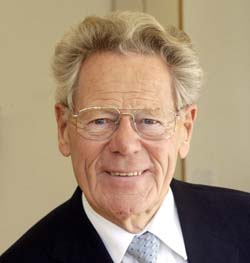Prepared by Jesca Donisiani
Guest Facilitator: Donna Tarney from Call-to-Action Nairobi (Kenya)
Members present: Collins (Kenya), Cecilia (Kenya), Abel (Kenya), Mary (Kenya), Faith (Kenya), Steven (Kenya), Ashik (Pakistan), Staich (Pakistan), Arsian (Pakistan), James (Tanzania), Jesca (Tanzania), Alloys (Kenya), Joe (USA)
Opening prayer by Jesca Donisiani
Lord, we thank you for you will going to help us, please feel us with your spirit; Lord I am going to lift up every one who will join us this time, that your spirit fills them and participate as according to your will, keep us focused on our topic today. Be glorified, be honored, as we lifted up your name, we give you praise and we thank you. Amen.
Alloys Nyakundi introduced new members and invited the guest facilitator Donna Tarney.
During this time, the facilitator discussed biases and stereotypes and how they affect our lives.
Before the gathering, everyone was asked to use their time to explore how common stereotypes in our culture impact the way people think about us and how we think about others. The goal of this gathering was for the young seekers to create some action steps that will help break down those stereotypes and give them a skill that will help them discuss this with other people in their life.
The Young Seekers were asked to watch the YouTube video by Chimamanda Adichie’s TED Talk “The danger of a single story” and write some reflections ahead of the gathering.
The guest facilitator asked everyone to share their reflections from Chimamanda Adichie’s TED Talk “The danger of a single story”, all participants shared, which became very helpful as everyone understood what stereotype means and gave light to the rest of the discussion.
A single story means to judge or generalize one’s story based on one side. And this is where stereotypes get their roots as it widely held but fixed and oversimplified images or ideas of a particular person or thing.
The danger of a single story;
- It deprives people’s dignity
- Makes recognitions of equal humanity difficulty
- It emphasizes how we are different rather than how we are similar.
- It’s easy to make assumptions about other people without facts.
- Promotes negativity about other people’s culture.
Thus, stories can empower, humanize, dehumanize, and repair or break people’s dignity.
Therefore, rejecting a single story allows one to appreciate other people’s way of life and culture.
After sharing, everyone got an opportunity to reflect on the scope of stereotypes towards the African continent and other communities around the globe. This time we went to our breakout rooms of two people, and young seekers were asked to use six minutes to learn how to listen to one another. The following questions were asked during breakout rooms
- When was the first time to encounter stereotype?
- What stereotype?
- How did you correct it?
- How did you feel?
- Do we stereotype others?
- What do you believe influences how you treat others?
Breakout rooms were an experience for everyone to understand the danger stereotypes and how they affect human beings. After sharing what we discussed in the breakout room, we returned to the rooms, and these questions guided what we should discuss; again, it was the six-minute session.
This was the best therapy as it gave every one of us time to dig into more profound inner beings and found that it is true that we also stereotype others from different angles. The session allowed everyone to think deeply about the cold perceptions toward others and avoid stereotypes.
In the session, we discussed positive stereotypes that prop up good generalizations or statements that suggest the excellence of the targeted group. For example, the stereotype of Asians being good in academics uplifts the general view of Asian intellect.
We discussed that these positive stereotypes are also related to several negative consequences of targets’ emotional and psychological states, their performance-based behaviors and other judgments of them. As it imposes limitations on the people, they target roles not necessarily suited to them, making it harder for them to be their true selves.
The discussion went further to see how it affects the one with this positive stereotype towards other people, as it makes the person feel down and fail to keep much effort and give up because of the feelings that a particular group is betters than himself.
Our facilitator asked the young seekers to close their eyes and take two minutes to reflect and find out how they internalize both positive and negative stereotypes, how they affect their lives and decide what to do to eliminate stereotypes.
Here Alloys reminded the young seekers the Global Ecclesial Synod Council meeting that would be held on Saturday, April 1. Thanks to Fr. Joe Healey, our monthly guest speaker will be Dr. Philomena Mwaura: Prof. Philomena Njeri Mwaura (ku.ac.ke). Among her numerous credentials, she served on both the Frascati drafting committee for the Document for the Continental Synod and participated in the African Continental Synod.
The young seekers express their gratitude to the guest facilitator, Donna Tarney. After this gathering, young seekers were asked to explore how common stereotypes in their culture impact the way people think about us and how we think about others. We can create some action steps that will help break down those stereotypes and give us a skill that will help us discuss this with other people in our life.
The gathering ended with a word of prayer from Jesca Donisiani.
The next gathering will be on Thursday April 13 and the facilitator will be Cecilia Ndinda.


